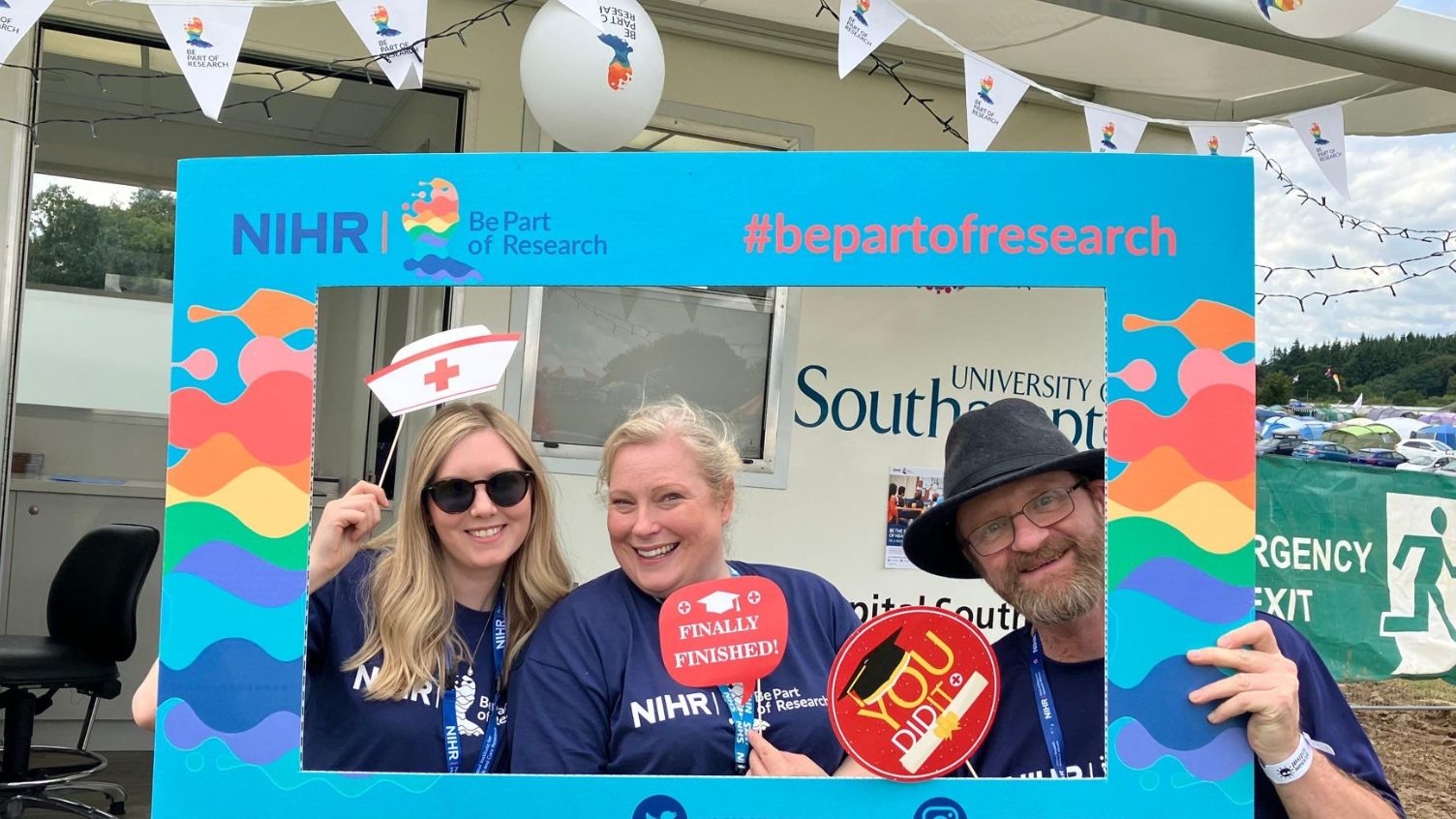Stockport mum will tell her daughter she was part of groundbreaking RSV trial
- 30 January 2024
- 4 min read
Ivy Stroud took part in the HARMONIE trial which has shown a single antibody injection vastly reduces baby hospital admissions with winter illness RSV.
Mum Liz is proud her daughter was part of research that could help future babies.
Little Ivy Stroud was among 280 Greater Manchester babies who played a part in a groundbreaking NIHR-supported study which has found that a single dose of a treatment for a respiratory infection in infants can help cut hospital admissions by more than 80%.
RSV (Respiratory Syncytial Virus) is one of the leading causes of hospitalisation in all infants worldwide and affects 90% of children before the age of two.
It is estimated that among children in the UK, RSV accounts for around 450,000 GP consultations, 29,000 hospitalisations and 20 to 30 deaths per year, the majority occurring in babies.
RSV often causes only mild illnesses, such as a cold. However, for some babies, it leads to more severe lung problems such as bronchiolitis and pneumonia.
Now, the HARMONIE study has shown an 83% reduction of hospitalisations for RSV in infants who had an injection of the antibody nirsevimab. A single dose also reduced hospitalisations due to severe chest infections caused by RSV by 76%, and decreased hospitalisation for all chest infections by 58%.
The findings of the study have been published in a paper in The New England Journal of Medicine. The new treatment is approved in the UK and is being considered for a national RSV immunisation programme. Data from the trial has already been used to roll out the jab in the US and Spain this winter.
More than 8,000 infants in the UK and Europe took part, and families in Greater Manchester played a big part in this effort. This included Ivy who was among 280 babies, aged newborn to 12-months-old, who participated in the study at hospitals, as well as some GP practices, in the region.
Health and care professionals across the Greater Manchester network also played a huge role. The HARMONIE study is a collaboration between Sanofi, its partner AstraZeneca, and the National Institute for Health and Care Research (NIHR), which supported the delivery of the study across eight sites in across Greater Manchester, East Cheshire and East Lancashire.
Mum-of-two Liz Stroud, 34, of Hazel Grove, consented to her daughter Ivy, now 13-months-old, participating in the HARMONIEtrial in December 2022.
It was the first time the family had been involved in research. Ivy took part in the trial at the paediatrics outpatient clinic at Stepping Hill Hospital, part of Stockport NHS Foundation Trust, shortly after she was born. She was randomised to receive an injection of the nirsevimabantibody.
"RSV is a very common thing that we see in the hospital in babies," said Liz, a children's nurse at Stepping Hill. "It can be a very nasty illness, especially in cases where the baby requires CPAP (continuous positive airway pressure) treatment, and some babies may need to go on a ventilator. In those cases they really are quite poorly and it can be distressing for everyone involved."
Ivy is in good health, though at around 12-months-old she had to be admitted to hospital with respiratory illness herself. On one of these occasions she tested positive for RSV and needed to stay in hospital overnight, but is now back to her normal self.
Liz said: "It's been amazing to hear the news of these results which are so promising. It made me feel proud that we've helped future babies to be protected against this horrible virus and I'll definitely tell Ivy about it when she is older."
Professor Clare Murray is the Specialty Lead for children's research at NIHRClinical Research Network Greater Manchester.
She is a Consultant in Respiratory Paediatrics at Royal Manchester Children's Hospital (RMCH), part of Manchester University NHS Foundation Trust, where she was Principal Investigator for the HARMONIE study.
She said: "We are proud to have collaborated with research teams across the region to deliver the HARMONIE study and provide opportunities for hundreds of babies to be part of this vital research. It is through their involvement that the study has been able to gather such positive results which reinforce the public health benefit of nirsevimab as an antibody which can help reduce the strain caused to the NHS by RSV every winter and protect babies globally. This is really important evidence with the potential to inform changes in the UK's immunisation programme for RSV."
Professor Saul Faust was a co-study leader at the University of Southampton.
He is also a Consultant Paediatrician at University Hospital Southampton NHS Foundation Trust, Director of the NIHR Southampton Clinical Research Facility and NIHR Clinical Research Network Wessex.
He said: "These latest results show that this long-acting antibody is safe and could protect thousands of babies from hospitalisation when used in conditions similar to routine clinical practice. It is really important information for the UK to help decide on options for the future national RSV immunisation programme."


